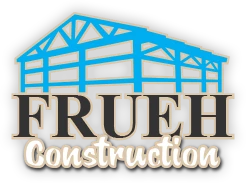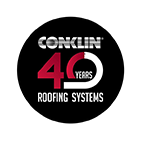Pole barns are a versatile and cost-effective solution for various needs, from agricultural storage to commercial workshops and residential garages. In Bismarck, North Dakota, where weather conditions can be harsh, having a durable and well-built pole barn is essential. At Frueh Construction, we specialize in designing and constructing high-quality pole barns to meet the unique demands of our clients. If you’re considering a pole barn for your property, call us on 701-693-5765 for expert guidance and construction services.
Benefits of Pole Barns

Pole barns offer numerous advantages, making them a popular choice for many property owners:
- Cost-Effective – Compared to traditional buildings, pole barns require fewer materials and labor, reducing overall costs.
- Quick Construction – The simple yet strong design allows for faster construction timelines.
- Durability – Built to withstand North Dakota’s harsh winters, pole barns can endure high winds, heavy snow, and extreme temperatures.
- Versatility – Suitable for various applications, including storage, livestock shelters, workshops, and garages.
- Low Maintenance – With quality materials and proper installation, pole barns require minimal upkeep.
Uses of Pole Barns
Pole barns serve a variety of purposes, including:
- Agricultural Storage – Ideal for storing hay, equipment, and livestock feed.
- Commercial Use – Perfect for warehouses, workshops, and equipment storage.
- Residential Garages – A great option for extra vehicle storage, hobby spaces, or home workshops.
- Equestrian Facilities – Designed for horse barns and riding arenas.
- Multi-Purpose Buildings – Customizable for various needs, including offices or event spaces.
Key Features of a Well-Built Pole Barn

A high-quality pole barn should include:
- Strong Structural Support – Sturdy posts and trusses for long-term stability.
- Weather-Resistant Materials – Metal siding and roofing to withstand harsh elements.
- Proper Insulation – Ensuring temperature control and energy efficiency.
- Efficient Ventilation – Preventing moisture buildup and enhancing air circulation.
- Custom Design Options – Tailored layouts, colors, and finishes to match your needs.
Steps to Building a Pole Barn
Constructing a pole barn involves several key steps:
- Planning & Design – Determine size, layout, and purpose.
- Site Preparation – Clear and level the land for a stable foundation.
- Setting Posts – Installing deep-set posts for structural support.
- Framing & Roofing – Constructing the walls, trusses, and roof.
- Siding & Finishing Touches – Adding insulation, doors, and other custom features.
- Final Inspection – Ensuring durability and functionality before completion.
Maintaining Your Pole Barn
Regular maintenance helps extend the life of your pole barn:
- Inspect for roof leaks or damage after storms.
- Keep gutters clean to prevent water buildup.
- Check for signs of wood rot or pest infestations.
- Repaint or reseal metal siding as needed to prevent rust.
- Ensure proper ventilation to minimize moisture issues.
Local Custom Construction
If you’re looking for a high-quality pole barn in Bismarck, North Dakota, Frueh Construction is here to help. Whether you need a storage space, workshop, or agricultural facility, we provide expert craftsmanship and customized solutions to meet your needs. Call us on 701-693-5765 to discuss your project and get started on your durable, long-lasting pole barn today!
FAQ
1. How long does it take to build a pole barn?
The timeline depends on the size and complexity of the structure. Most pole barns can be completed within a few weeks.
2. Do I need a permit to build a pole barn in Bismarck, ND?
Yes, a building permit is usually required. Check with local zoning authorities, and we can assist with the process.
3. What foundation is needed for a pole barn?
Pole barns typically do not require a traditional foundation. Treated wood posts are embedded into the ground for support, though a concrete floor can be added.
4. Can I insulate my pole barn?
Yes! Insulation helps regulate temperature, making it ideal for workshops, living spaces, or livestock housing.
5. What roofing materials are best for pole barns?
Metal roofing is the most common choice due to its durability, weather resistance, and low maintenance.
6. How do pole barns handle North Dakota’s winter conditions?
Pole barns are designed to withstand heavy snow loads and extreme temperatures. Proper insulation and ventilation improve durability.
7. Can a pole barn be expanded later?
Yes, pole barns are highly adaptable, making expansions and modifications simple.
8. What is the lifespan of a pole barn?
With proper maintenance, a well-built pole barn can last 50 years or more.
9. Are pole barns suitable for residential homes?
Absolutely! Many people customize pole barns as barndominiums for comfortable living spaces.
10. How much does a pole barn cost in Bismarck, ND?
Costs vary based on size, materials, and customization. Contact us for a free estimate.


